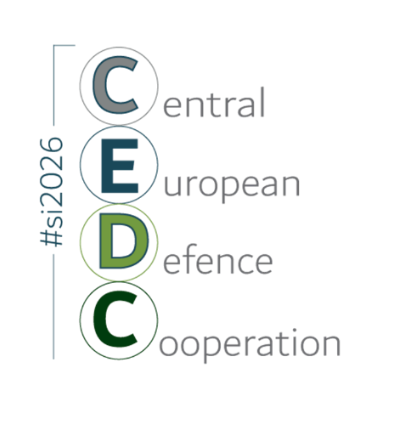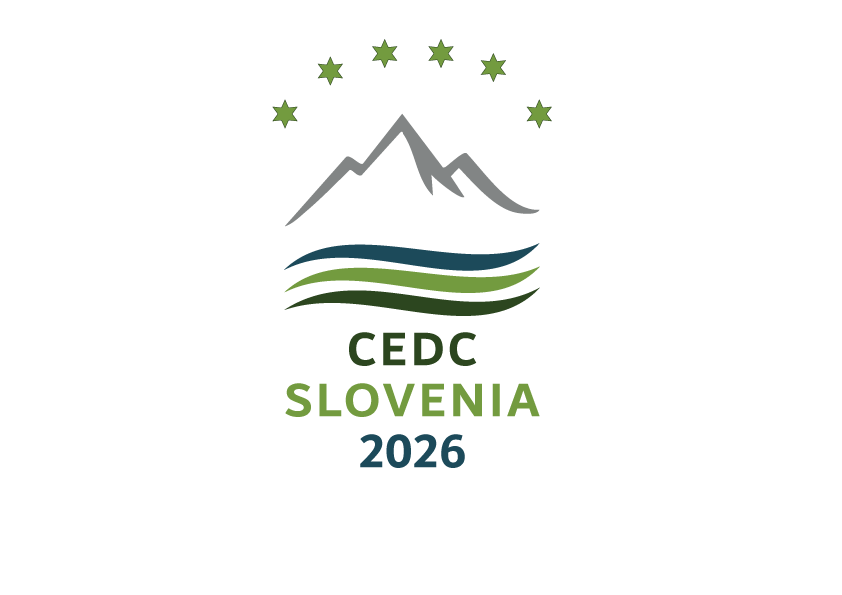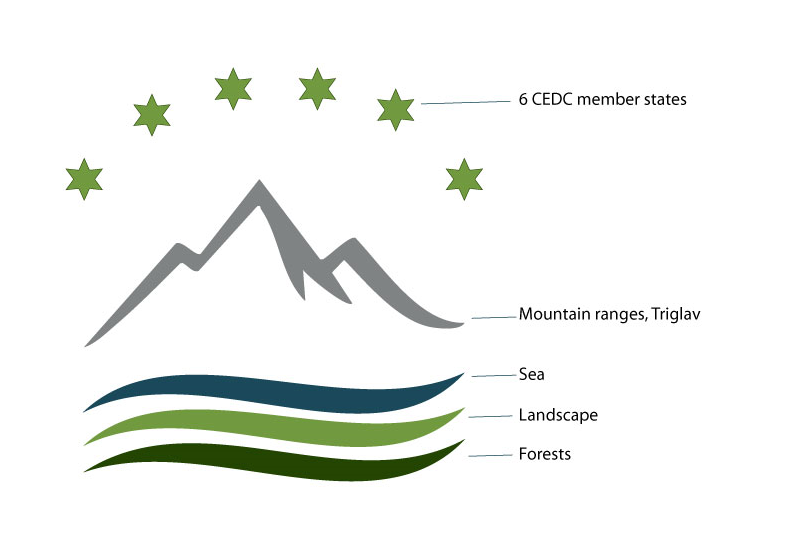Current presidency

PRESIDENCY OF THE REPUBLIC OF SLOVENIA
TO THE CENTRAL EUROPEAN DEFENCE COOPERATION INITIATIVE (CEDC)
2026
The Central European Defence Initiative (CEDC) was established in 2010 and it includes Defence Ministries of six countries (Austria, Croatia, Czech Republic, Hungary, Slovakia and Slovenia), with Poland participating as an observer country. The first Ministerial Meeting of the initiative took place in Austria in June 2012. Recognizing that regional security is closely interconnected to the security of the neighboring regions, the cooperation with the partners from the Western Balkans (WB), the so-called CEDC+ format, was established in 2020.
The CEDC represents a platform for cooperation in the field of security and defence, where participants discuss, develop, and pursue common interests. The main objective of the CEDC is to contribute to strengthening regional security within especially the framework of the EU by promoting the specific regional interest of member states. Cooperation focuses in particular on coordinating EU policies addressing common regional challenges and threats, implementing projects between the armed forces, and strengthening capabilities. The CEDC is fully committed to supporting the integration of the WB into the EU. One of the ways to achieve this goal is through the enhanced cooperation between the CEDC member states and their regional partners in the WB.
The activities of the CEDC are coordinated by the presiding country. The Presidency lasts for one calendar year and includes meetings of Defence Ministers, Defence-Policy Directors, and other meetings and events on the operational level. During 2025, Slovak Republic held the Presidency to the CEDC, and this year the Presidency was taken over by the Republic of Slovenia. Following Slovenia, Croatia will take over the CEDC Presidency in 2027.
From January 1 to December 31, 2026, Slovenia will coordinate the activities of the CEDC. The Presidency will be held under the slogan: “From Policy to Practice – Building a Stronger Central Europe”, which emphasizes the transition from dialogue to joint action and capacity development. The Presidency will take place in the time of the increased interest among member states in the enhanced regional cooperation, strengthening resilience, and synergy withing the EU.

The main objectives of the Slovenia’s CEDC Presidency are to strengthen regional security cooperation and exchange of good practices; to promote discourse on the European defence initiatives and seek opportunities for joint cooperation between the CEDC member states; to increase operational readiness and develop capabilities; to cooperate with partners from the WB; to strengthen regional interoperability and resilience; to support digital and cyber resilience; to promote cooperation in the field of the defence industry and innovation; to strengthen cooperation in the military field; to establish standardised defence and military terminology.
The programme of the Slovenian Presidency to the CEDC includes a combination of content-related, expert, and promotional events that complement and support the overall theme of “from policy to practice” among the CEDC member states, and where possible, in cooperation with partners from the WB. Key high-level events to be held include a meeting of the CEDC member states and WB states’ Defence Ministers, meetings of Defense-Policy Directors, a meeting of Armaments Directors, and an informal meeting of Chiefs of General Staff of the Armed Forces. In addition, Slovenia will host numerous expert meetings in various fields, such as military recruitment, preservation and maintenance of military heritage, presentation of a case study on cyber theory and practice, and workshops on terminology and foreign language platforms.
For the purposes of recognition and promotion of the identity of the Republic of Slovenia within the initiative and during the Presidency, a comprehensive graphic image was designed, symbolically combining the natural resources of Slovenia and its role as one of the member states in the CEDC initiative.

